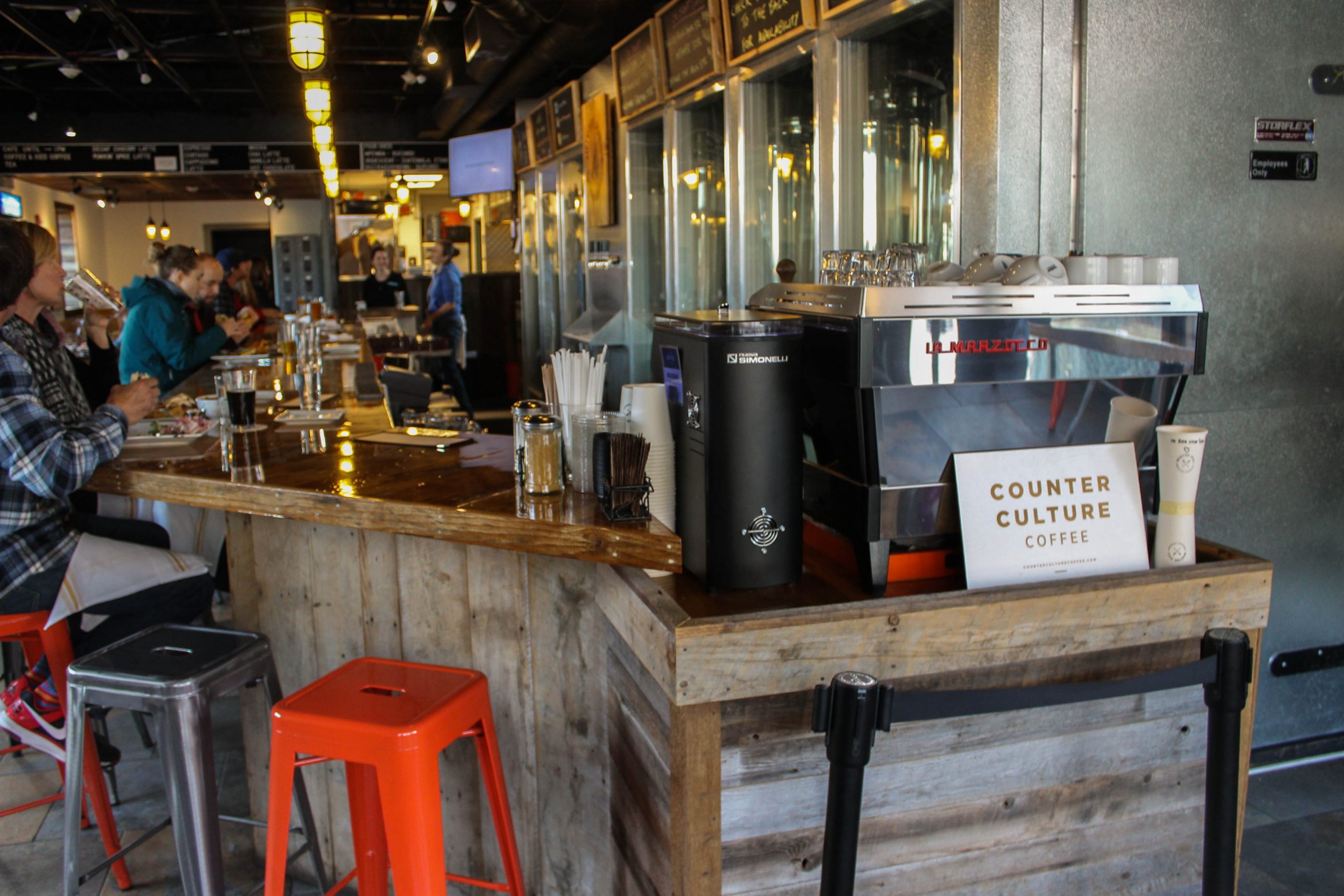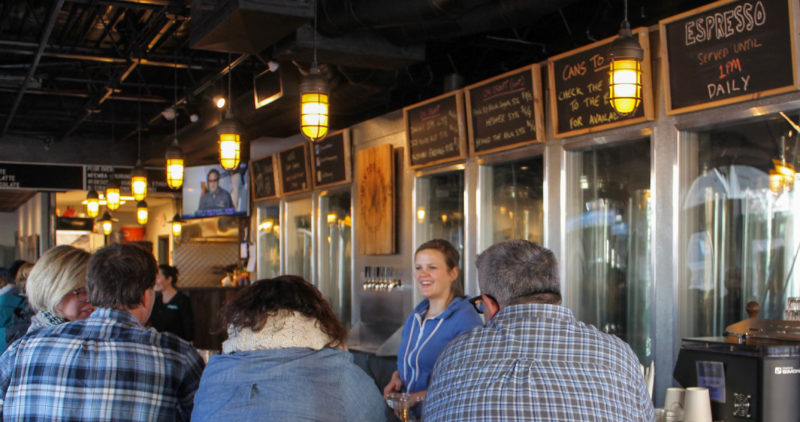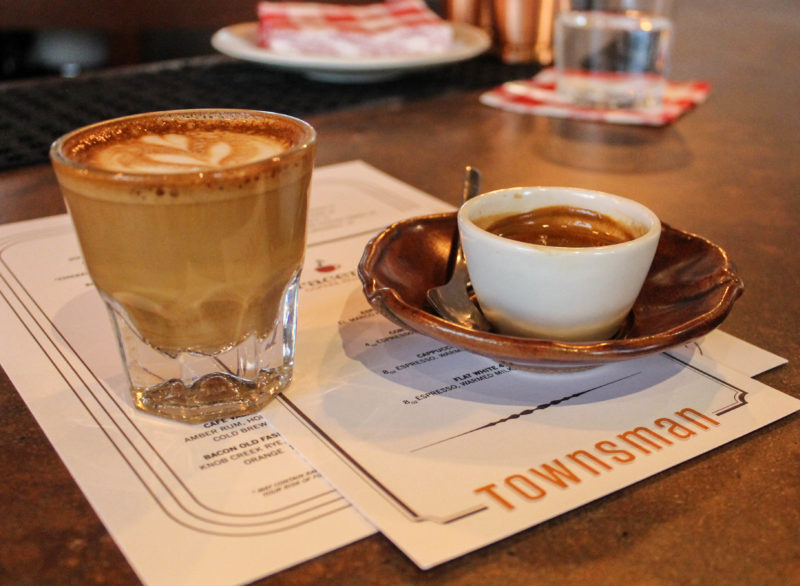


From atmosphere to guest interactions to the actual things that end up on our plates and in our cups, patrons have come to expect craftsmanship at every turn. Guests may sing praises of your decadent dinner items or your clever spin on a traditional cocktail, but how many times have you heard them remark about their end-of-meal coffee? Perhaps because specialty coffee has become the major focus of roasters and and daytime baristas, restaurant staff and guests have not come to expect high quality caffeine. Coffee, it often seems, is not really a part of the dining experience.
Coffee, justifiably, might not be a primary concern for menu designers. For one, despite its rich history, coffee is typically not a focus of culinary training. Thus, the ease and convenience of bulk-ordered coffee and a drip brewer can be enticing to any busy restaurant. There’s also the fact that not everyone orders it alongside their dessert course. Furthermore, restaurant coffee is purchased relatively far along in its production cycle compared to other ingredients in the kitchen or bar, as it’s been grown, harvested, dried, and roasted before it ends up in your brewer. So, it’s easy to think “just add hot water!” and call it a day.
However, consumers are becoming increasingly sensitive to gastronomic quality in every sense. For proof, think no further than the continued proliferation of craft products across the food and beverage industry. Recognizing the wide-spread interest in locality that is nearly essential in the craft industry, the best restaurants have made it standard practice to work with independent producers with whom they can share knowledge and resources in pursuit of consciously sourced and prepared products. If owners rely on, and have found success by partnering with independent brewers, distillers, farmers, and bakers, why not partner with the a quality roaster as well?
Some restaurants have begun to take this idea to heart. Their commitment to taking coffee as seriously as the rest of their menu has resonated with customers. The changes they’ve made range from managers simply revamping their coffee infrastructure to seeking coffee training to collaborating with coffee professionals. Here are some exciting practices already at work in the Boston area:
Front of house staff at Craigie on Main in Cambridge takes extra care to weigh out and hand pour each individual cup for guests. By purchasing wholesale from nationally-renowned Counter Culture Coffee, they source their beans just as mindfully as they prepare them.
At Loyal Nine a few miles down the road, employees have taken things one step further by making brewing a part of the customer experience. A trained barista wheels over various coffee-prepping materials on a cart—be it a Chemex, V60, or siphon—then brews each cup table-side and to order.
A handful of spots have started to take note of the intersectional potential that exist between the different parts of the food and beverage industry, and have begun integrating their operations permanently. Take Somerville’s Winter Hill Brewing for instance (note the double entendre in their name), which is run as a cafe during the morning and a brew pub in the evening.

Similarly, Cambridge’s newly opened Lamplighter Brewing houses Longfellows, a daytime coffee house, in their taproom. These decisions not only extend the facility’s hours of operation; they also broaden each business’ customer base. Furthermore, as co-founder Cayla Marvil pointed out in a blog post about the collaboration, “there’s also some really cool things that can be done with coffee and beer…(Coffee Berliner Weisse anyone? Or how about a Cold-Brew/Imperial Stout “Shandy”?), and it’s going to be awesome to have the resources we need to experiment right at our front door.”

On the other side of the river, Townsman serves uniquely sourced and meticulously roasted Gracenote Coffee. Townsman’s Chef-Owner Matt Jennings justifies this decision thusly: “Of course the coffee program should be reflective of our overall ethos in the restaurant–ie. it is an continuation of the hospitality experience here–so [it’s] important to source products that we believe in.” When the companies became neighbors after Gracenote opened their cafe just across the street in Downtown Boston, they seized the opportunity to collaborate. Townsman has started operating a pop-up espresso bar in the restaurant, with coffee experts at the helm during brunch service. “A smash success from the start,” the partnership conflates and improves both the cafe and dining industries in a sense. “The end result,” as Jennings puts it, “is a tangible, flavorful memory.”
By having a unique partnership with a specialty roaster, or by simply doing what’s necessary to send your guests off with an excellent cup of coffee, you give your restaurant the chance to round out a carefully curated and impressively balanced experience. Here are some steps you can consider to get there:
Upgrade your brewing equipment. And with that, learn how to properly use it! Making better coffee may be as easy as buying higher quality coffee, investing in a better grinder, or using a scale to make sure each cup/pot is brewed with consistency.
Go to a “cupping” at your local specialty roaster. As cafe’s get more invested in their product, they want to help improve the knowledge of their customer base as well. At cuppings, a barista will help you break down the tasting process, so that you can observe the nuances of coffee flavor. A number of roasters host these events regularly, so it’s easy to self-educate (not to mention the connections you can make across the service industry)!
Take a coffee course. Some larger roasters and coffee organizations offer training on a variety of topics, from brewing basics to espresso mechanics. They’re an excellent way to improve your knowledge quickly so that you can better educate your staff.
Schedule 15mins to chat with a product specialist
Start a FREE Trial Today! BevSpot offers full product education and account setup for all customers! No card Information needed!
